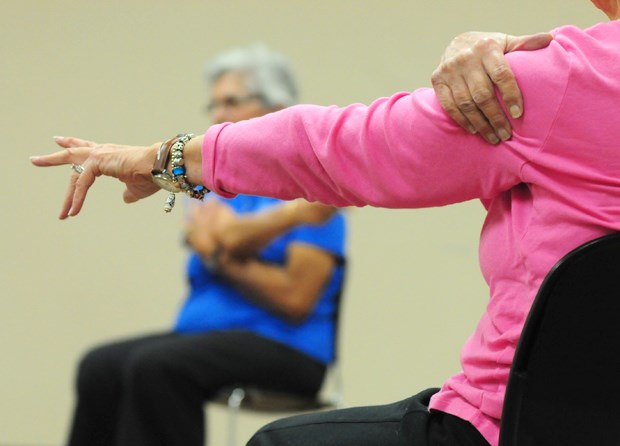How have seniors in our communities fared over the last few years?
The province’s official seniors advocate, Isobel Mackenzie, in a recently published report, states, “There are areas where we clearly need to be doing better.” However, she remains “confident we are all committed to improvements for seniors in British Columbia.”
Let’s hope that’s true.
Mackenzie’s report, through a collection of data from a number of sources, looks at more than 25 programs and services offered to seniors in B.C. and measures performance on a year by year basis.
Mackenzie states “this is now the third year my office has published this report and we are seeing some very meaningful trends that can tell us whether we are heading in the right direction in delivering the supports and services that are key to assisting seniors to maintain independence and enjoy good health.”
The report shows data covering five areas over the last year including health care, housing, transportation, income supports and elder abuse.
The good news reported included the fact that in 2015/16, 92 per cent of seniors were attached to a doctor or doctor-practice and this has remained relatively constant during the past three years.
This is good news, although many people on the North Shore have reported that finding a doctor is very difficult and they must make use of clinics, which often don’t have a history of their clients.
Last year was the first year the report, called Monitoring Seniors’ Services, has included data from police sources regarding reported crimes of abuse and theft against seniors.
The report found that in regions served by the RCMP, the number of 65+ victims of violent offences has decreased since 2009.
For the 81 per cent of senior households that own their home, the number of new individuals claiming property tax deferment (including yours truly) nearly doubled in the last year.
And according to Mackenzie, “the popularity of the Property Tax Deferment Program demonstrates its value in helping those seniors who are homeowners to address the rising costs of maintaining a home.”
According to many economists tax deferment is a “no brainer” since the program is based on a very low interest loan agreement with the provincial government and the taxes will eventually be paid from the homeowner’s estate.
Last year saw decreasing wait times for residential care after they increased in the previous year, and the report showed increased income support for seniors through a 12 per cent increase in MSP premium assistance.
The bad news included the fact that the average home support hours delivered per client per year decreased by three per cent from the previous year, while the number of clients increased by 3.5 per cent. There has been a 23.5 per cent increase in the number of home care complaints over last year, this includes professional services such as nursing and physical therapy, as well as home support.
The report shows that the number of Seniors’ Subsidized Housing units continues to decrease: “From 2013/14 to 2016/17, there was a decrease of almost five per cent. The number of people 55 or older waiting for a unit increased nearly 16 per cent in the last year alone. Since 2005, the Shelter Aid for Elderly Renters (SAFER) maximum rent that qualifies for a subsidy has increased nine per cent, while rents have increased by 45 per cent (seven per cent in the last year alone).”
Even if you’re not on SAFER, the increase in rent and rising real estate costs makes it very difficult to move if you want to downsize, especially on the North Shore.
Finally the report shows data that the Seniors Abuse and Information line received 1,763 calls pertaining to abuse in 2016, a 21 per cent increase compared to 2015.
Recommendations from the advocate’s office that readjustments be made to Fair Pharmacare and home support co-payment formulas, as well as increases to the B.C. Seniors Supplement, have not been met despite significant cost increases for seniors.
The report describes a situation for seniors that Mackenzie says “highlight several areas of concern for me.” She adds, “There is a continued decrease in home support service and adult day programs as well as an increasing lack of affordability for senior renters. These results should also be of concern to the government as lack of support in these areas will drive some seniors into residential care which is a more costly intervention and one that is least preferred by seniors.” The report notes, “We know there are up to 15 per cent of seniors living in residential care who could live in the community with proper supports.”
In this new year, hopefully government at all levels will make the changes necessary to meet the concerns raised by the seniors advocate, which will enhance seniors’ lives for the better.
Margaret Coates is the co-ordinator of Lionsview Seniors’ Planning Society. She has lived on the North Shore for 47 years and has worked for and with seniors for 20 of those years. Ideas for future columns are welcome Email: [email protected].



